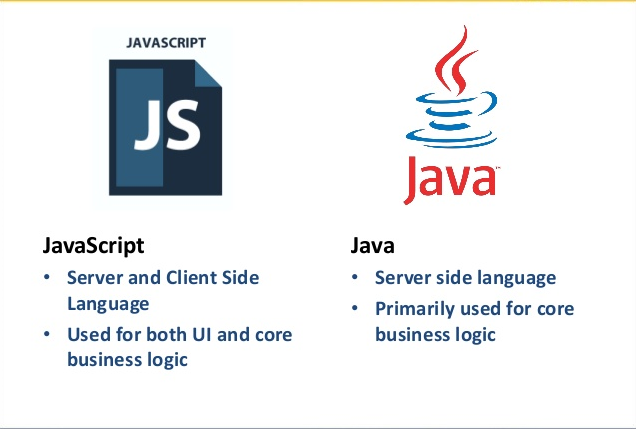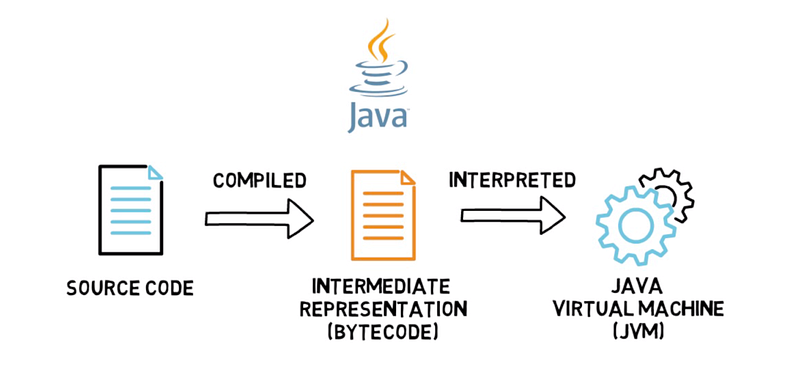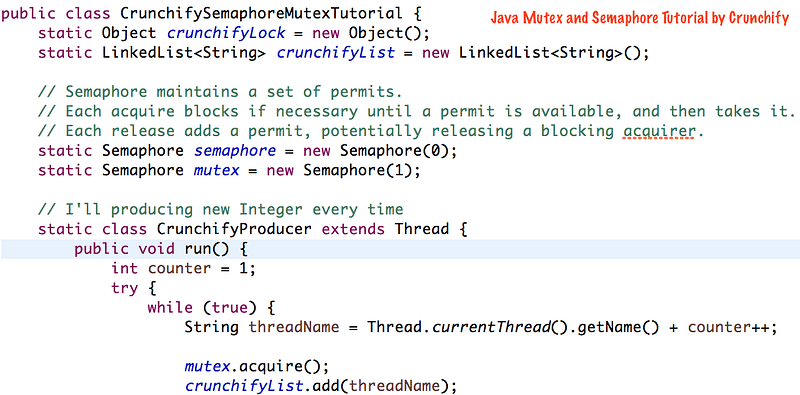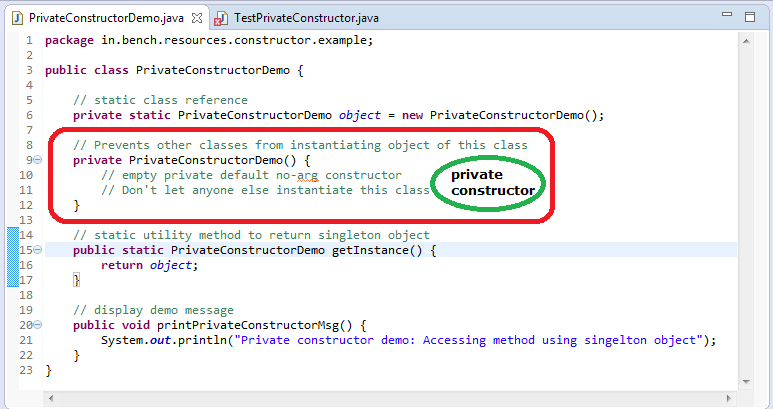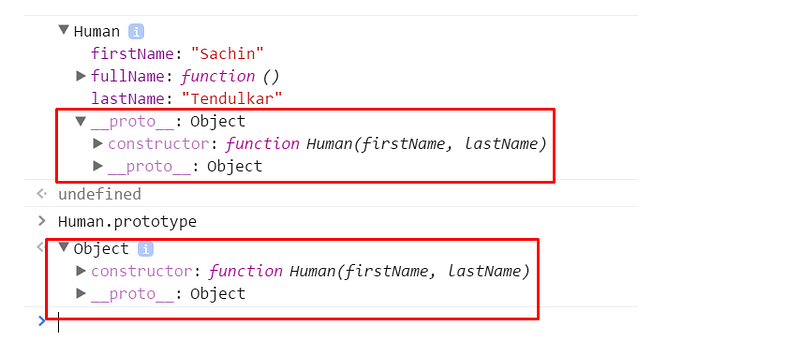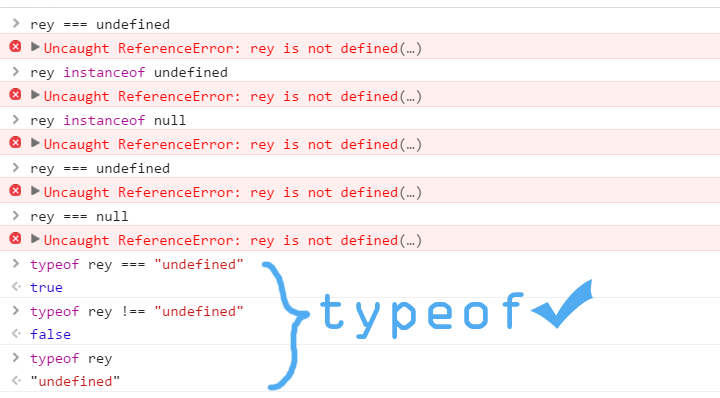Java Vs JavaScript - comparison between most popular languages for web and mobile app development with vital differences and properties that make them robust.
Many times people raise so many about the usage of Java and JavaScript. While the battle between Java vs JavaScript is prolonged, the difference between technologies is gaining.
Since the names are very similar, people wonder are they same? or Is JavaScript an extended version of Java? In this article, we will find answers to many questions related to Java and JavaScript.
In an interview with JAX London, Baruch Sadogursky said that “ Java is to JavaScript as ham is to the hamster.” It merely means that the two technologies have nothing in common, which can lead us to the conclusion that there is a connection between both.
Though these languages have a significant role in software application development. Altogether, these programming languages have created impeccable popularity by showing up great potential. With every passing year, these languages have evolved so far and helped developers to bring so many digital ideas into reality. Right now, there is no competition between Java and JavaScript, and they are thriving programming trends in dissimilar application development verticals.
Do you want to know which one of these is best? Or which one can be best for your application development project? Let’s take an in-depth look at both programming languages.
An In-Depth Insight Into — Java Vs JavaScript
When you ponder over these languages, you must think that what is Java and JavaScript? and how they are dissimilar from each other.
Java and JavaScript are two discrete programming languages assembled and executed separately at different times, and even the potential of both programming languages are significantly different.
Java programming language works at server-side development and enables the application to perform eloquently server-side tasks. Moreover, JavaScript is a client-side scripting language that infuses interactivity and validations in web pages.
Both languages have their own features, functionality, and syntax that pertain to no similarity. Here are some major key differences that categories these languages into the server-side and client-side facility.
Altogether, it is critical to know that programmers have to learn these languages to develop a program, and you need to hire expert Java developers skilled in rendering full java capacity to create an enterprise-level web application.
Java:
- It is an Object-Oriented Programming developed by James Gosling of Sun Microsystem, and Oracle acquired it later.
- As a standalone language, its code gets executed on JVM (Java Virtual Machines), which is first compiled into byte-ode and then saved with Java extension.
- Strongly oriented-oriented, and you can’t write any code without creating a class.
- JDK kit installation is essential to write code in Java.
- It supports static code and enables static code checking.
- The source code is concealed, and code gets compiled into bytecode.
- This programming language is designed considering the security of code paramount.
- Java code is enabled higher concurrency due to the class typography that enables the use of concurrent threads.
JavaScript:
- It is a client-side scripting programming language originally named as LiveScript and developed Netscape.
- JavaScript code requires to be written within HTML code and runs/executes at web browsers such as Chrome, Firefox, and Mozilla.
- It is a prototype-based scripting language.
- JavaScript codes require to be written on the text editor.
- JS is based on a dynamic type of code checking.
- JS codes are easy to read as they include plain text. However, JS codes are less secured and require cross-site scripting to ensure code security.
- Concurrency relies on “event loops” that support async and await features in coding.
These are the initial differences between Java and JavaScript. The major differences cover broader prospects in terms of quality of application, coding convenience, performance, and security.
Let’s take a look at major aspects of comparison between Java and JavaScript.
Major aspects of comparison: Java Vs JavaScript
#1: Compiled Language Or Interpreted Language
Java is a compiled programming language that executes on the virtual machine that can not be read by humans. In contrast, JavaScript code executes JavaScript Engine and doesn’t convert to any other type of syntax.
Creation and execution in Java programs require a number of steps to be accomplished. In Java, compiled code converts into machine code, which runs faster than interpreted code. In Java programming, if you want to make any change, you need to “rebuild” the program.
Though, JavaScript is completely opposite in this way, as it runs and executes code line by line by considering command quickly. JS is an interpreted language with a JIT (Just In Time Compiler) that offers a significant improvement in JavaScript’s performance.
Benefits Of Java
Java programming provides usage or threads that enable simultaneous task performance. In Java, codes compile into native code which executes and works faster by eradicating the overhead of the translation process.
IDEs and open source tools such as Eclipse and Netbeans are very popular that support desktop and web application development processes. Altogether, developers can use Java APIs as command and methods of communication for XML parsing, networking I/O, database connection, and more.
Benefits Of JavaScript
As being interpreted language, JavaScript enables developers some additional flexibility over Java implementation. JS is relatively quicker than Java because interpreters execute the source program that code themselves.
JS enables dynamic typing features and smaller executable program size. Moreover, it enables the development of a variety of applications and support transpilers such as TypeScript, Babel, CoffeeScript, and more.
#2. Concurrency Aspect For Java VS JavaScript
Java and JavaScript handle concurrency aspects differently as Java class enables the concurrency by providing threads that help developers in maintaining a parallel concurrency.
Whereas, JavaScript is based on a single thread execution system that offers a response to events whenever they occur during programming. JS has a queue system for handling concurrency, which is known as the event loop. This event loop avails a number of features such as async/await, callbacks, heap, event loop, and promises.
If you want to create an application using these technologies, you should get in touch with a deft Java application development company that can suggest you the right technology stack for creating a mind-blowing application.
#3. Class Oriented Or Prototype
Java is a language where class rules the coding structure and creates a blueprint for the code to be executed. As Java holds a class-based relationship, ass properties include within the class and inherited by the class instance.
In contrast to this, JavaScript is prototypical that enables objects to inherit from the other objects. There is no class system, and objects inherit properties from other objects of code.
Here are some other aspects related to this feature.
Java enables the use of constructors.
Whereas JS utilises the chain of prototype to connect the child code. For this, it uses constructor.prototype.
#4: Static Or Dynamic Type Checking
JavaScript is based on a dynamic form of coding and safety of codes by enabling verified runtime. While Java provides a static type of checking that include type recognition of variables at compile-time, which requires the developer to specify the type of variable in different categories such as integer, string, double and more
Java enables programmers static type checking, which is highly recommended to find out the types of error in the application development. Moreover, the compiler knows the type of data in code; that’s why the programmer can code at a faster pace.
Whereas, JavaScript dynamic type checking empowers you to assign the type of variable in function which enhances productivity.
#5. Support Option
The support community is the biggest perk for any programming language, so as for Java & JavaScript. In this aspect, both languages access support to vast communities, as Oracle backs up to Java software.
Oracle enables Premium Java SE support service to eradicate issues and problems in the programming language and platform such as Java components, Java standard edition, etc. Altogether, java developers have access to a vast community of Java experts. Similarly, JavaScript also gathers huge support from the developer community.
Moreover, both languages support prominent back-end development technologies such as JBoss, Apache, and Node.js. Altogether, they both support front-end development by enabling HTML code embedding and coding tactics.
Final Words
If you want to develop a web application, then both of the technologies are having their own perks. Though, the comparison between Java vs JavaScript is prominent and shows that both of the technologies have significant usage in web application development.
I am sure your dilemma about the technologies has been over; you would have understood that JavaScript and Java programming languages are a matter of choice. For more insights, you can reach out to a web and Java application development company deft in bringing digital ideas into reality.








 פרסום פרויקט
פרסום פרויקט


 התחבר עם פייסבוק
התחבר עם פייסבוק
 התחבר עם LinkedIn
התחבר עם LinkedIn

